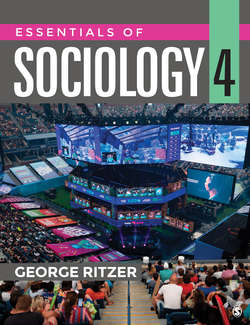Читать книгу Essentials of Sociology - George Ritzer - Страница 20
На сайте Литреса книга снята с продажи.
Critiquing Consumption
ОглавлениеThe sociological study of consumption sites involves, among many other things, a critical look at the ways in which they are structured. (The previous discussion of the irrationalities associated with McDonaldized settings is one example of such a critical perspective.) These sites may be set up to lead people to consume certain things and not others, to consume more than they might have intended, and to go into debt (Brubaker, Lawless, and Tabb 2012; Manning 2001; Marron 2009; Ritzer 1995). Consider Shoedazzle (www.shoedazzle.com), a website that uses commercials and “style quizzes” to recruit new members. Shoedazzle highlights an “exclusive” VIP membership status on its webpage, which anyone can join. Making its members feel special through seemingly personalized style quizzes and VIP memberships lures consumers into buying more shoes (and other products) than they really need.
Sociologists are also interested in how consumers use shopping malls and e-tailers in ways that were not anticipated by their designers. For example, people often wander through shopping malls and their many shops, which have been designed to spur consumption, without buying anything. Defunct malls are serving as impromptu skate parks. Students are using Amazon.com as a source for term-paper bibliographies rather than buying the books. Travelers are using internet sites such as Expedia and KAYAK to compare prices but then buying airplane tickets on the airlines’ own websites.
Social change continues. The Great Recession and its aftermath altered many things, including the degree to which society is dominated by consumption. Even today, long after the onset of the recession in 2007 and its supposed end, many U.S. consumers remain reluctant to spend money, or at least as much as they did in the past, on consumption (Kurtz 2014). As a result, consumption sites have experienced great difficulties. Many outdoor strip malls and some indoor malls have emptied; they have become “dead malls” (as documented on the site http://deadmalls.com). Many of the malls that continue to exist have numerous vacant stores, including abandoned large department stores. Las Vegas, which has long been a capital for the consumption of entertainment and high-end goods and services, has been hurting (Nagourney 2013). Casinos in Atlantic City, New Jersey, are being shuttered, and there are those who want to see the city become more like the simpler beach community it once was (Hurdle 2014). Dubai, aspiring to be the consumption capital of the East, hit a financial rough spot in 2009 and has yet to recover completely from it. It seems possible, although highly unlikely, that even though we entered the consumption age only about half a century ago, we now may be on the verge of what could be called the “postconsumption age.” While excessive consumption and the related high level of debt were key factors in causing the Great Recession, a postconsumption age would bring with it problems of its own, such as fewer jobs and a declining standard of living for many.
Trending The McDonaldization of Society: Into the Digital Age, 9th ed. (Sage 2019)
